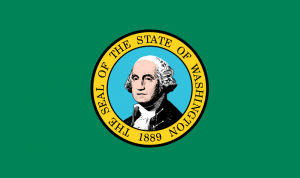Senior Editor
An admittedly unscientific poll of hunters on two different Washington State hunting forums shows an overwhelmingly negative attitude toward the state’s Department of Fish & Wildlife (WDFW).
The poll, conducted on the Hunting Washington and HuntFishNW forums, simply asks whether hunters have confidence in the WDFW directors and members of the Fish & Wildlife Commission. On the Hunting-Washington forum, more than 90 percent of the respondents expressed no confidence, and on the smaller HuntFishNW forum, the vote was also more than 90 percent negative.
Another discussion found on the Hunting-Washington forum is headlined “WDFW are crooks,” and it involves a debate on the rising cost of hunting licenses and tag fees, and application fees for permit hunts.
Hunter opinion on the WDFW is not entirely negative, despite the poll results. Many younger hunters—who never knew the “heyday” of Washington hunting back in the late 1950s, through the 1960s and into the 1970s—have no comparison. There is mixed support for “Resource Allocation,” which requires hunters to choose between archery, muzzle-loading or modern firearms hunting options and seasons. Many hate it, others like it.
Others favor permit drawing rather than over-the-counter tag sales, and still others seem to support some antler restrictions on deer and elk in certain areas or on specific species. Washington has coastal blacktail, mule deer and whitetail deer, plus Olympic and Roosevelt elk. For several years, there has been a 3-point minimum on mule deer bucks, and last fall, the commission implemented a 4-point or better restriction on whitetail bucks in two key whitetail hunting units.
However, more Evergreen State hunters express growing discouragement and hostility toward regulations, such as the 3-point restriction on mule deer and contradictory antler restrictions on elk on different sides of the Cascade Mountain range, which splits the state. These regulations, many contend, have not resulted in better opportunities, because hunting seasons have been moved earlier in the year by a few days here and there, which many believe contributes to reduced harvest.
There have been some bad winters and an outbreak of disease that decimated the mule deer populations in the southern Cascades. In some areas, mule deer bands appear to have been completely wiped out.
Perhaps the final straw was what has appeared to be the open embrace extended by members of the commission and WDFW biologists for wolves. Washington has a small but growing wolf population and the management plan adopted a few months ago calls for 15 breeding pairs to be documented.
Washington hunters do not share the wolf welcome mat because they fear the worst—based on experience in neighboring Idaho—in terms of predation on elk and mule deer.
There is lingering bitterness in many corners over the WDFW’s lethargic reaction to an initiative passed several years ago that outlawed hound hunting for cougars and black bears. Many hunters believe the state now has far too many cougars and bears, taking far too big a bite out of elk and deer populations.
Likewise, the coyote population has surged in recent years, a combination of a down fur market and the requirement to purchase a hunting license. In earlier times, coyotes could be hunted without a license, and that seemed to keep the population in check.
There is no easy solution, but hunters appear to be grouping behind Republican Rob McKenna, who is running for governor. The governor’s office in Washington has been occupied by a Democrat for a quarter-century, and many believe it is time for a change.
McKenna’s likely opponent in the open race—Gov. Christine Gregoire is retiring—is anti-gun Democrat Jay Inslee, who abandoned his Congressional seat to run for the governor’s office.




